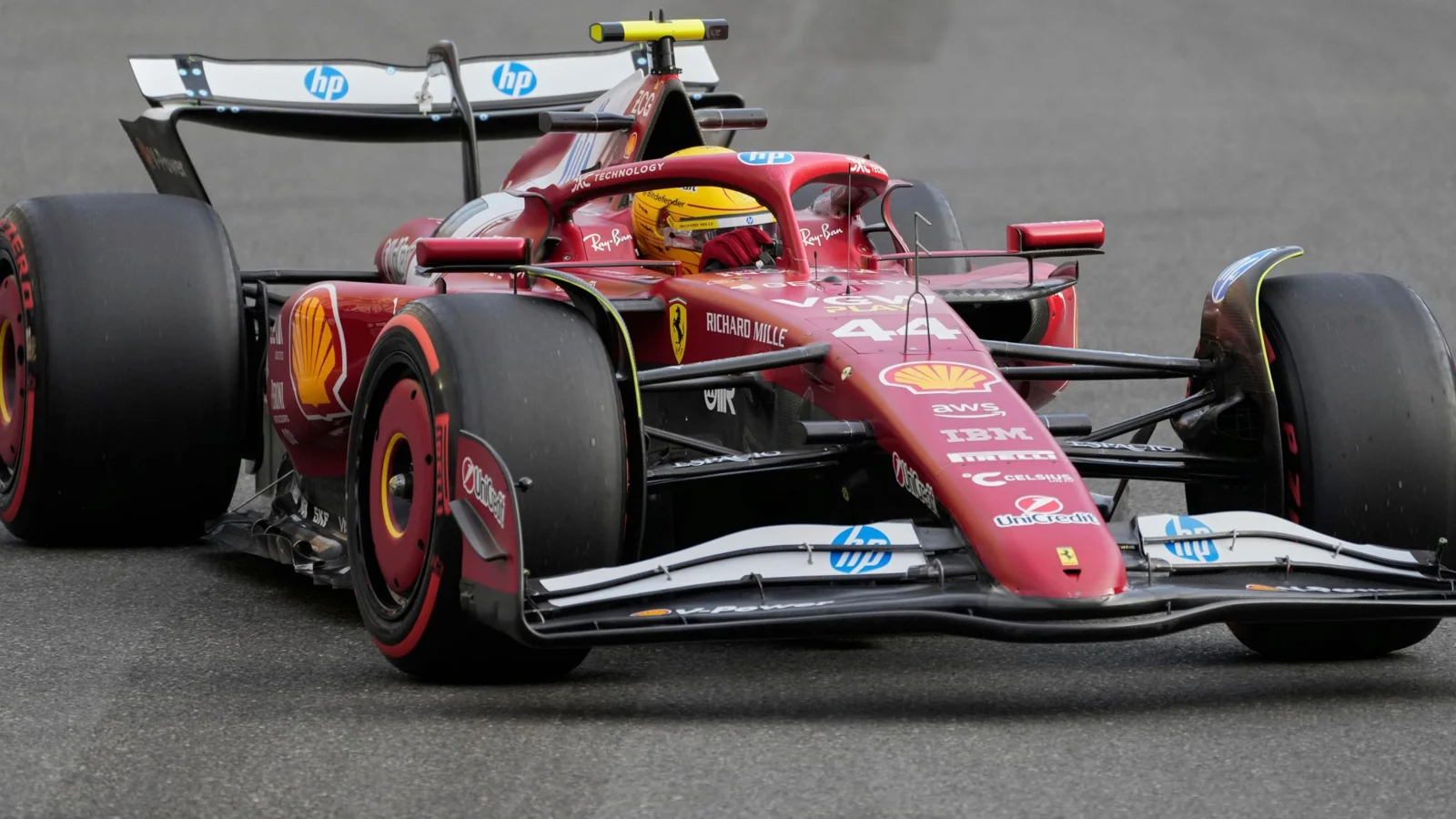Lewis Hamilton’s refusal to give up eighth place to Charles Leclerc at the Azerbaijan Grand Prix in Baku stirred strong reactions, as Ferrari had requested Hamilton to yield position late in the race. The incident, involving a contested team order, has sparked debate around strategy and driver conduct.
Ferrari aimed to have Leclerc regain eighth position from Hamilton via team orders after swapping their drivers earlier to capitalize on fresher tyres for attacking rivals like Lando Norris, Yuki Tsunoda, and Liam Lawson. Despite slowing and checking his mirrors as instructed, Hamilton crossed the finish line four-tenths of a second ahead, denying Leclerc the position.
Insights into Hamilton’s Response to Team Instructions
During the final laps, Ferrari instructed Hamilton to slow down and let Leclerc pass to enhance Leclerc’s chances of overtaking drivers ahead, but Hamilton managed to maintain his position. Leclerc’s reaction over the team radio expressed frustration and sarcasm, highlighting the tension within the team.
Argh. Ah, I don’t really care. It’s for an eighth place, so… it’s OK. He can enjoy that P8,
Leclerc said following the race, clearly disappointed.
It’s just stupid because it’s not fair. But again, I don’t mind, honestly. P8 or P9, it’s been a difficult weekend, so…
he added, reflecting a sense of injustice.

Hamilton later apologized to Leclerc, suggesting the misunderstanding at the finish line was unintended, but opinions on the matter remain divided.
Jacques Villeneuve Defends Hamilton’s Handling of the Situation
1997 Formula 1 World Champion Jacques Villeneuve sided with Hamilton’s actions, criticizing Ferrari’s decision to impose the team order in the first place. Villeneuve argued Hamilton’s approach was strategic and justified based on race conditions and tyre advantages.
Lewis Hamilton played it well. He played it really well,
Villeneuve commented during an interview with a gambling platform.
He further explained that Ferrari’s command for Leclerc to let Hamilton pass was unnecessary, as Hamilton’s performance on the fresher tyres was strong enough to overtake without team intervention.
So, I guess that’s why Lewis didn’t really want to let him by again!
Ferrari’s Explanation and Team Principal’s Comment
Ferrari team principal Fred Vasseur attributed the incident to a misunderstanding rather than deliberate insubordination from Hamilton. According to Vasseur, their strategy was clear but hampered by on-track circumstances and communication issues.
I think the situation was clear for us that Lewis had a tyre advantage and we asked Charles to let him go to try to overtake Lawson and Tsunoda or Norris,
Vasseur explained.
He added that Leclerc experienced an issue with track recovery, and Ferrari was not at its peak performance on engine power, prompting the team’s decision to swap positions.
We asked to swap back and it looks like Lewis had a misjudgement on the position of the start and finish line.
Impact of Baku Result on Ferrari and Championship Standings
Finishing near the lower points positions in Baku was a disappointment for Ferrari, allowing Mercedes drivers George Russell and Kimi Antonelli to gain second and fourth respectively, pushing Ferrari down to third in the Constructors’ Championship. The team’s struggles in Baku highlight ongoing challenges they’re facing in consistency and execution.
Villeneuve expressed concern over Ferrari’s current state, describing the team as “completely lost right now,” but also reminded fans and critics that the ongoing season is far from decisive due to upcoming regulatory shifts.
Looking Ahead: Ferrari’s Prospects Amid Upcoming Regulation Changes
Villeneuve referenced the significant technical changes scheduled for the 2026 Formula 1 season, which includes new chassis and engine regulations that could shake up the racing hierarchy. He suggested these changes might represent an opportunity for Ferrari to regain competitiveness.
It’s one season. Let’s not forget next year it almost starts from zero for everyone.
So, it could be a perfect beginning for Ferrari next season,
Villeneuve predicted, emphasizing the team’s potential if they capitalize on fresh developments.
I don’t think they’re focusing on the rest of 2025. 2026 is coming.
This perspective underscores how Ferrari’s management and drivers may be prioritizing long-term gains over immediate results in a difficult transitional year.
The Lewis Hamilton Baku team order controversy, fueled by team dynamics, driver strategy, and technical factors, highlights the complex interplay between team commands and individual driver decisions. It also serves as a reminder of the unpredictable nature of Formula 1, particularly as teams brace for future regulatory changes that promise to reset competitive landscapes.
